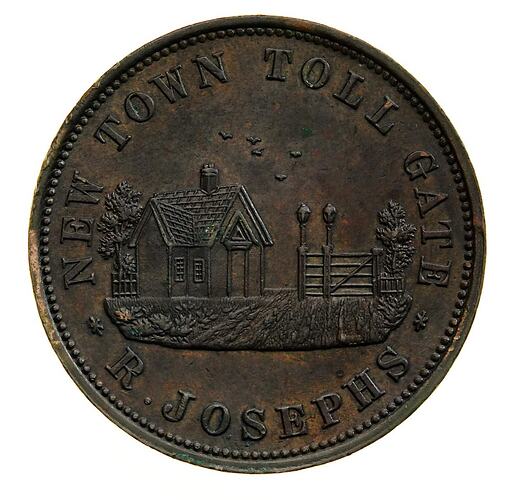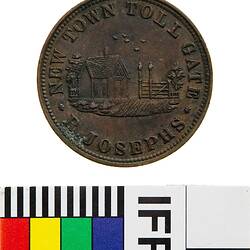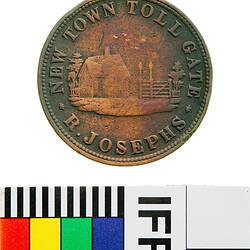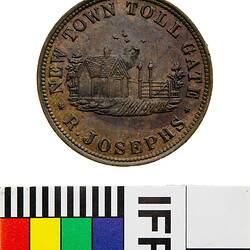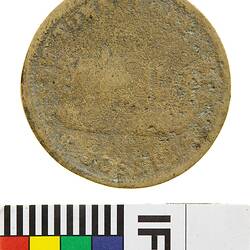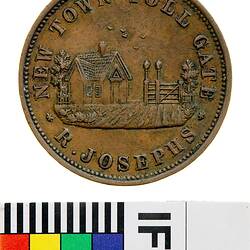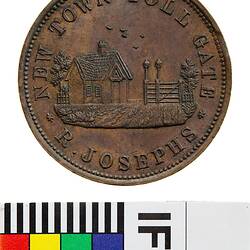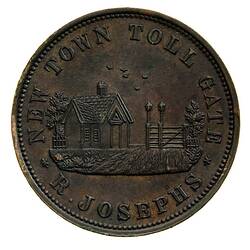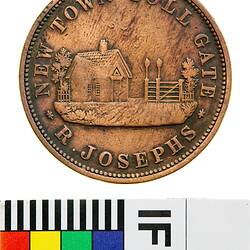Reuben Josephs was born in London in 1790 and was a tailor by trade. He and his brother sold old clothes from a warehouse in London, until he was convicted of receiving stolen goods. On 25 October 1827 he was sentenced to fourteen years transportation and sent to Van Diemen's Land. His wife emigrated to Tasmania and purchased two blocks of land at New Norfolk. Reuben was assigned to be her servant, and they started a business there.
He was granted a ticket of leave in July 1833, a conditional pardon in 1836, and his certificate of freedom in 1841. After his wife died in 1844, he moved to Liverpool Street in Hobart. In 1852 he won the tender to operate the New Town toll gate for three years. It was during this time that he issued his trade tokens, which would have no doubt enabled him to profit from giving change to people passing through his gate.
In documents of the Hobart Hebrew Congregation, Reuben Josephs was listed as a contributor to the fund for the construction of the Hobart Synagogue, and as a 'seatholder' [financial member] of the Congregation during the period 1852-1877. (Elias, P. & A. 2003, pp.33, 87)
The Archives Office of Tasmania lists a Reuben Joseph in the Index to the State Pioneers Database giving his date of birth as 1796 (the database notes that this date is not necessarily reliable as it is inferred from other records). It also states that he married a Rachel Levien in Hobart in 1856 and died in 1862 in the Hobart region. The records of the Hobart Hebrew Congregation show that Josephs died on 21 November 1862 at the age of 72, and was buried in the Jewish section of the Old Hobart Cemetery. (Elias, P. & A. 2003, p. 230)
Josephs issued his 'Toll Gate' penny tokens in 1855. They were made for him by Heaton and Sons, Birmingham.
References:
McNeice, R. Coins and Tokens of Tasmania, 1803-1910, pp. 83-84.
Archives Office of Tasmania, Index to Pioneer's Database, http://resources.archives.tas.gov.au/Pioneers/taslink3.asp?ID=204060
Elias, P. & A. (eds.) (2003). A Few from Afar: Jewish lives in Tasmania from 1804, pp.33, 87, 230.
More Information
-
Keywords
-
Localities
-
Authors
-
Article types
